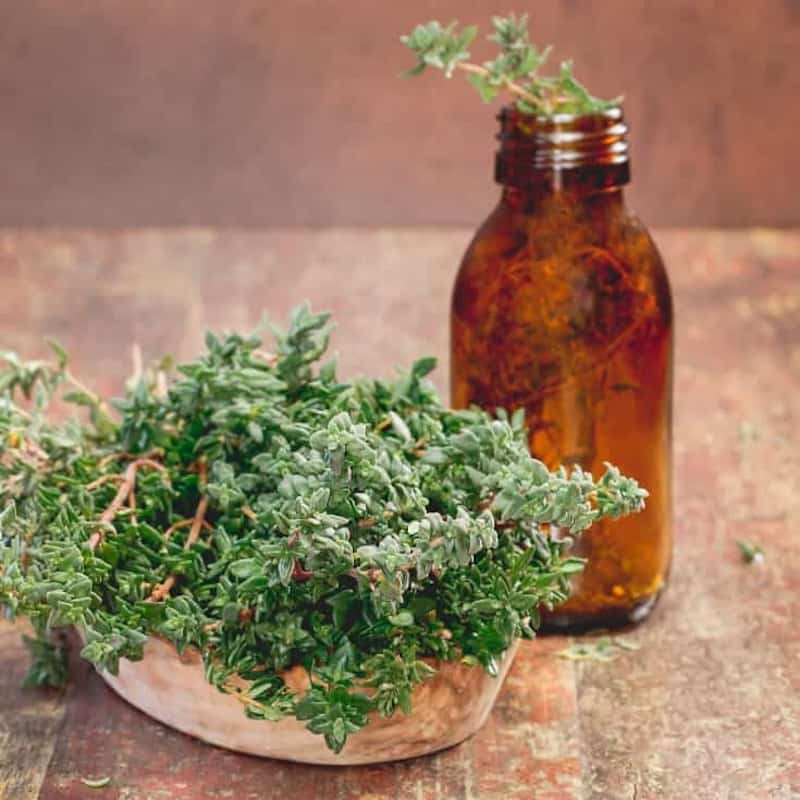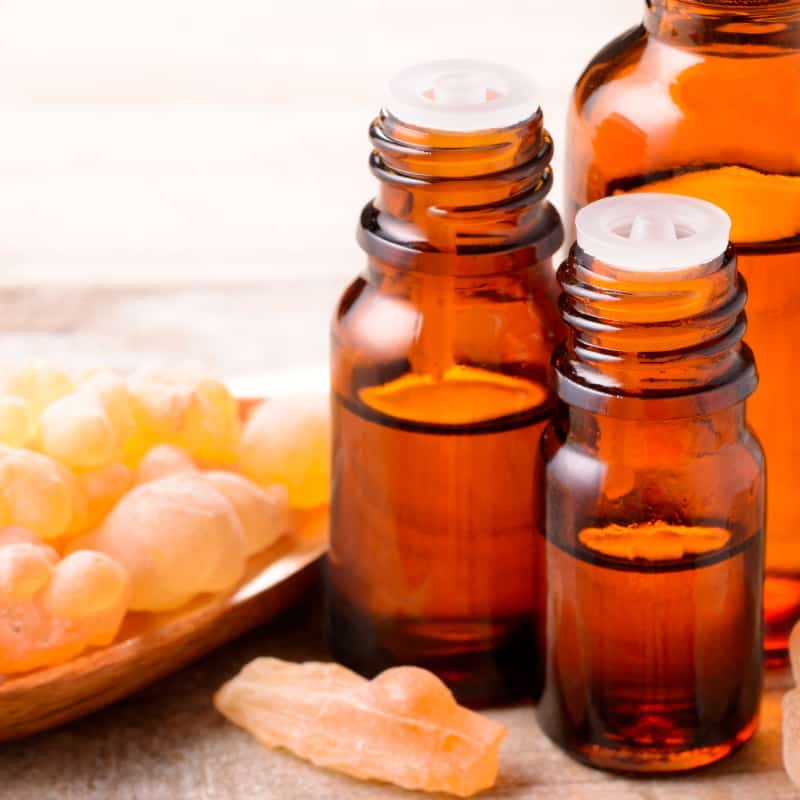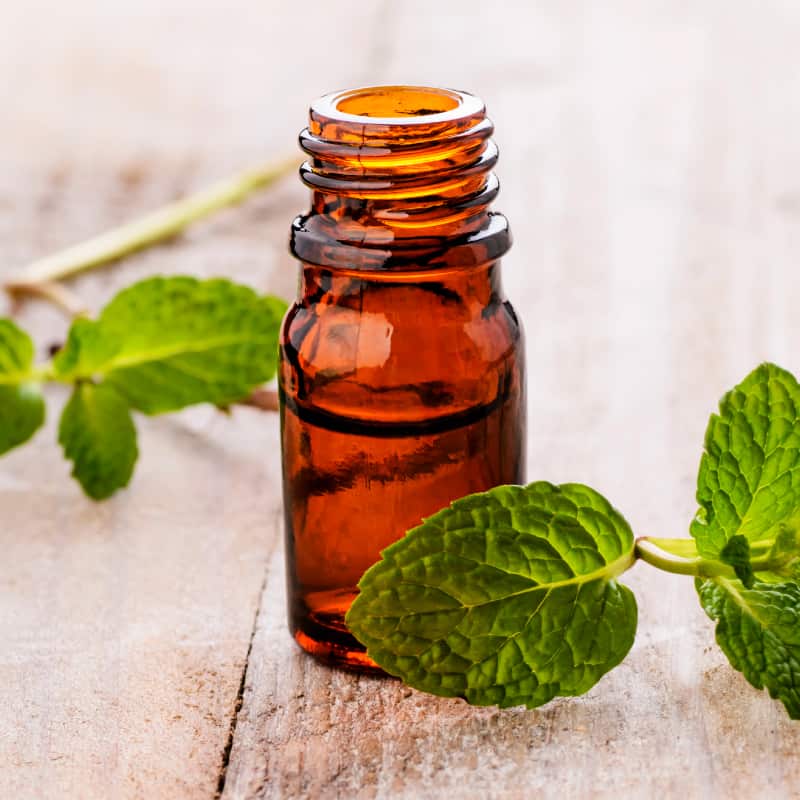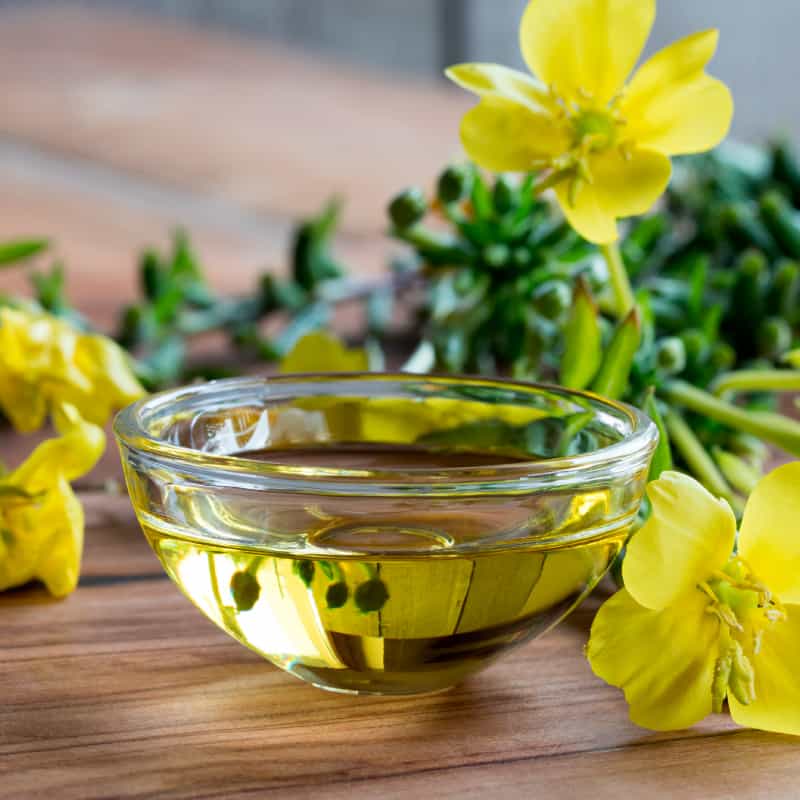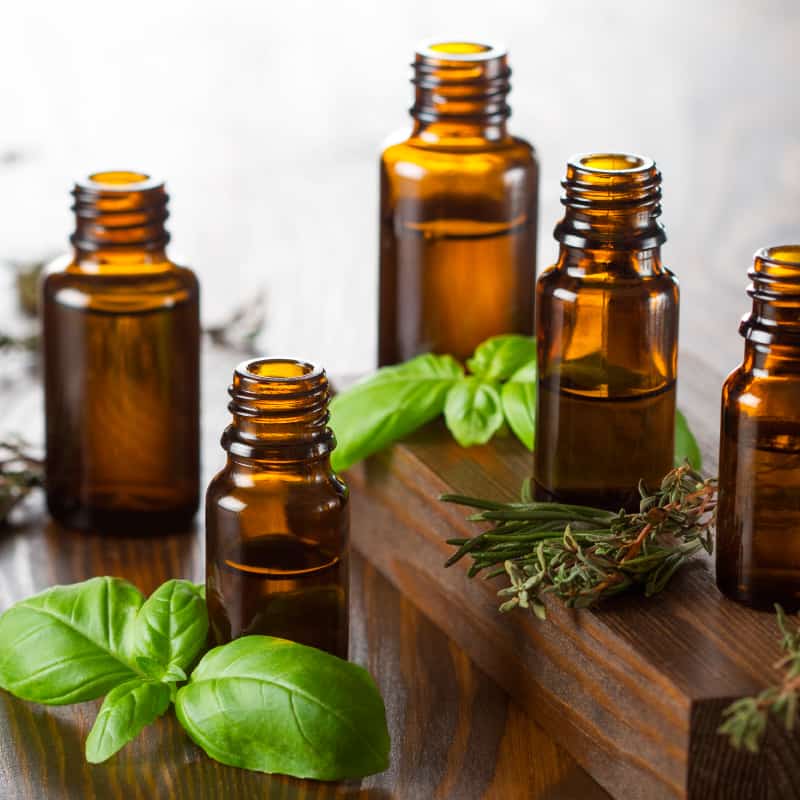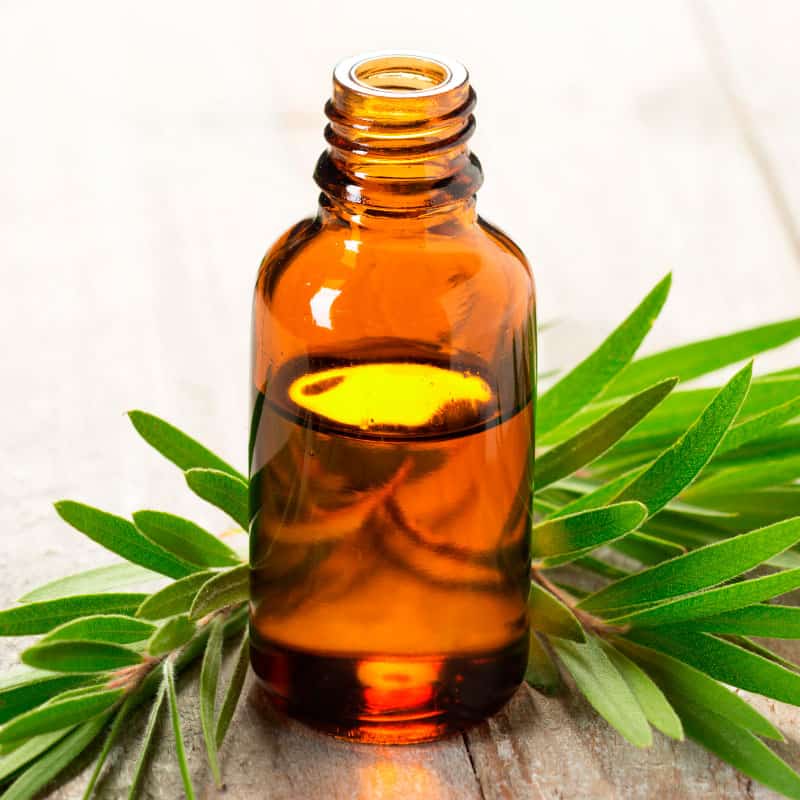This Dr. Axe content is medically reviewed or fact checked to ensure factually accurate information.
With strict editorial sourcing guidelines, we only link to academic research institutions, reputable media sites and, when research is available, medically peer-reviewed studies. Note that the numbers in parentheses (1, 2, etc.) are clickable links to these studies.
The information in our articles is NOT intended to replace a one-on-one relationship with a qualified health care professional and is not intended as medical advice.
This article is based on scientific evidence, written by experts and fact checked by our trained editorial staff. Note that the numbers in parentheses (1, 2, etc.) are clickable links to medically peer-reviewed studies.
Our team includes licensed nutritionists and dietitians, certified health education specialists, as well as certified strength and conditioning specialists, personal trainers and corrective exercise specialists. Our team aims to be not only thorough with its research, but also objective and unbiased.
The information in our articles is NOT intended to replace a one-on-one relationship with a qualified health care professional and is not intended as medical advice.
Essential Oil Safety (and Are Essential Oil Diffusers Safe?)
May 22, 2018
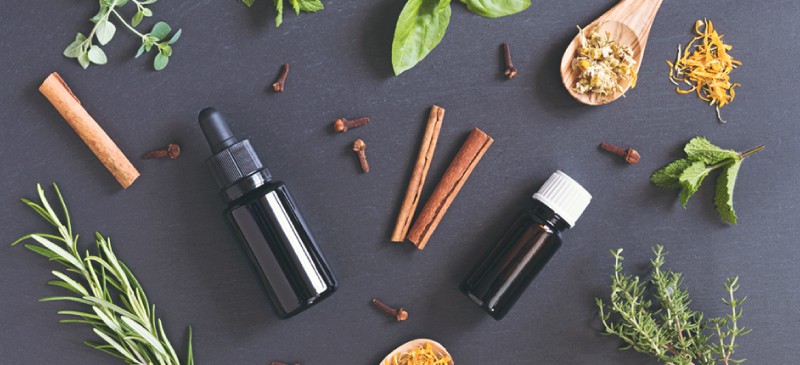
Essential oils have been shown in studies to have very few negative side effects or risks when they are used as directed. But given how popular essential oils have become in recent years, and how many different brands of oils are now available, it’s not surprising that there’s some growing concerns regarding essential oil safety.
Are essential oils bad for your health? After reading the information below, I believe that you’ll agree that no, essential oils are not generally dangerous. Overall, there’s good evidence that essential oils are both safe and can be a powerful, healing tool in natural medicine.
That being said, there are different methods of application that are most appropriate for each essential oil, so it’s important to do your research and buy high-quality oils in order to use these products safely. Essential oils may be applied on the skin (dermal/topical application), inhaled, diffused or taken internally, but it’s not always safe to use every oil in all of these ways. Some precautions are necessary, and certain oils should NOT be used topically, internally or by people with certain sensitivities.
Are Essential Oils Safe?
A key point to understand about essential oils is that they are very concentrated, meaning you only need to use a very small amount to experience results. Essential oils must be used with care and labels must be read carefully so that guidelines are always closely followed.
Here are some of the most frequently asked questions regarding essential oil safety:
Should essential oils be used externally or only topically on skin?
Depending on the specific oil, they can be used in both topically or internally. When applying oil to your skin, it’s usually best to dilute about 2 to 3 drops of pure oil with a vegetable oil that serves as a “carrier oil.” Mix a small amount of the essential oil with equal parts of coconut oil or jojoba oil and then apply to your skin over the affected area that you’re treating. Some of the best locations on the body to use essential oils include on your neck, temples, wrists, over your abdomen, chest and the soles of your feet. Essential oils should never be applied to the eyes or ear canals.
Are essential oils safe to inhale?
Yes, most essential oils are safe to inhale or diffuse. You can diffuse about 5 drops in an oil burner of diffuser, or inhale the oil directly from the bottle for several seconds. Is it bad to inhale essential oils if you’re already sick? Inhaling certain essential oil vapors can actually help to improve recovery if you’re congested, dealing with a cold or if you have seasonal allergies. (1)
For example, rosemary, peppermint and eucalyptus oil can all help you breath more easily and manage symptoms of respiratory conditions. You can also add 10 drops of oil to boiling water, put a towel over your head and breathe in the aroma for 5 minutes.
Are essential oils safe when used internally and ingested?
This depends on the specific oil. Certain essential oils have been approved as ingredients in food and are classified as GRAS (generally recognized as safe) by the U.S. Food and Drug Administration. (2) Is it safe to drink essential oils? You can use very small amounts of certain essential oils in water or tea, such as lemon or ginger oil, but in general you should use precaution when taking essential oils internally (more tips on this below).
Are essential oils safe during pregnancy?
Infants, toddlers, young children and pregnant women are all are more sensitive to the effects of essential oils. It’s necessary for pregnant women to avoid using some essential oils all together because the oils can have stimulating effects on the uterus, pose risks to the fetus, affect blood pressure, or simply because not enough research has been conducted to show that certain oils are definitely safe. Due to increased sensitivity, some oils will also need to be avoided by children, women who are breastfeeding women, and the elderly. It’s important to read labels carefully before using any oil if you’re pregnant, breastfeeding or giving oils to your children.
What essential oils are good for you and safe if you are pregnant? Some that you can safely use include: lavender, bergamot, frankincense, geranium (safe after first trimester), ginger, grapefruit, juniper, lemon, sandalwood, orange, and ylang ylang. Diffusing oils aromatically is a safe way to use essential during pregnancy because it doesn’t have as strong effects as using the oil on your skin or internally. (3)
Essential oils that should NOT be used during pregnancy include:
- Basil
- Birch
- Black pepper
- Cedarwood
- Cardamom
- Cassia
- Cinnamon
- Citronella
- Clary sage
- Clove
- Cumin
- Cypress
- Eucalyptus
- Fennel
- Geranium (not considered safe during first trimester)
- Hyssop
- Jasmine
- Lemongrass
- Manuka
- Marjoram
- Melissa
- Myrrh
- Oregano
- Tea Tree
- Roman Chamomile
- Rose
- Rosemary
- Spineard
- Thyme
- Wintergreen
Are Essential Oil Diffusers Safe? 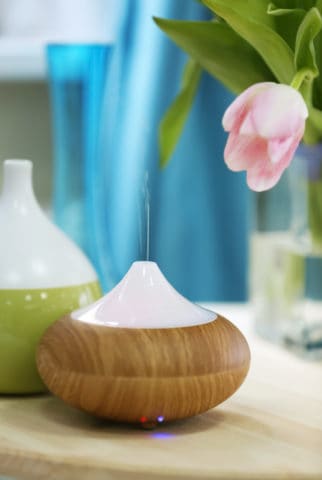
- Essential oil diffusers are used to vaporize oils, releasing small amounts into the air. The same safety concerns regarding inhaling essential oils also apply to using oils in a diffuser.
- Overall inhalation is considered a very safe method of using oils that poses a low level of risk. It is very unlikely that the concentration of any essential oil will rise to dangerous levels due to vaporization.
- Do not diffuse oils around newborns, babies, young children, pregnant or nursing women, or pets unless you are sure they are safe.
- If you have allergies, asthma or a similar condition you may find that diffusing essential oils, which have strong fragrances, may trigger respiratory a reaction. Stop inhaling or diffusing essential oils if this is the case. Oils that can be less irritating when inhaled include peppermint, lavender, tea tree, eucalyptus and chamomile. (4)
- Use a diffuser for about 30–45 minutes at a time for the most effectiveness. Don’t leave your diffuser plugged in overnight. Fill up the diffuser with a appropriate amount of water and read the directions carefully. You may want to purchase a diffuser that has an automatic stopper after about 20–30 minutes of use, which means it will turn off on its own if you forget.
- Keep all essential oils away from flames (candles, gas, etc.) as they can be highly flammable.
- Make sure your home/room has good ventilation. Open up windows if the fragrance becomes too intense.
- Don’t add carrier oils to your diffuser, which might cause it to break. Periodically clean your diffuser with soap and warm water to help it to work effectively and to prevent mold or bacteria from accumulating.
- Do not use essential oils in a humidifier, since these are not made for essential oil use like diffusers are.
- Use caution when diffusing essential oils that might irritate mucous membranes. These include clove, cinnamon bark, lemongrass, and thyme oils. (5)
- Start slowly when it comes to diffusing oils in your home so you can test your reaction. If you have any concerns about specific oils worsening symptoms you’re experiencing, then ask your healthcare provider about their opinion.
Safety Recommendations for Each Essential Oil
Here are recommendations for using essential oils safely:
Oils that are generally safe when used both externally & internally include:
- Bergamot — May cause skin sensitivity. Avoid direct sunlight for up to 12 hours after external application. May affect blood sugar control.
- Cassia — May reduce milk supply in lactating women and should only be used in small doses.
- Cilantro
- Cinnamon Bark — May cause skin sensitivity/irritation and should always be tested first by people with sensitive skin.
- Clove — Can cause skin irritation and/or have a numbing effect. May irritate the sinuses and eyes in some people, so use with caution. When using internally take a probiotic supplement twice daily to restore beneficial flora.
- Coriander — May cause skin sensitivity.
- Cumin — Should not be used during pregnancy since it can stimulate blood flow in the uterus. Avoid direct sunlight for up to 12 hours after external application.
- Fennel — Do not use during pregnancy or if you are prone to seizures or have epilepsy.
- Frankincense — Has blood-thinning effects, so people with problems related to blood clotting should not use this oil before consulting with their healthcare provider. Can be diffused, breathe in directly or rubbed topically on the skin. May also be used as a suppository (under the supervision of a health practitioner).
- Fir Needle
- Geranium — May cause skin sensitivity. Avoid using it during the first trimester of pregnancy, and use only in topical dilutions thereafter. During pregnancy use with caution since it may influence hormone secretions, especially estrogen.
- Ginger — May cause skin sensitivity.
- Grapefruit — Has been shown to interfere with certain medications, so always ask your doctor. Avoid direct sunlight for up to 12 hours after external application since it can increase sensitivity to sunlight.
- Helichrysum
- Holy basil — Should be used with caution by anyone with impaired liver function or a clotting disorder.
- Hyssop — Avoid use while pregnant. D0 not exceed 30 drops of hyssop in a day.
- Jasmine — Avoid use during pregnancy.
- Juniper Berry—May cause skin sensitivity.
- Lavender
- Lemon — Avoid direct sunlight for up to 12 hours after topical application.
- Lemongrass — May cause skin sensitivity. Should not be used by women who are pregnant, children or nursing mothers.
- Lime — May cause skin sensitivity. Avoid direct sunlight for up to 12 hours after topical application.
- Manuka — Avoid use during pregnancy.
- Marjoram — Should not be used during pregnancy since it acts as an emmenagogue.
- Melissa — May cause skin sensitivity. Avoid use during pregnancy.
- Myrrh — Must be avoided during pregnancy since it’s a fetotoxic (poisonous to a fetus). May lower blood sugar levels and interfere with blood sugar conditions. Discontinue use if it causes upset stomach or diarrhea.
- Orange — May cause skin sensitivity. Avoid direct sunlight for up to 12 hours after external application to avoid burns or redness.
- Oregano — Avoid use during pregnancy. Not to be used by infants and small children. May cause skin irritation. Should not used for more than 10 days.
- Patchouli —May inhibit blood clotting and pose a drug interaction risk.
- Peppermint — May be taken directly (about 1–2 drops) for digestive support. Some medications may adversely interact with peppermint oil, so consult a physician to discuss any drug interactions.
- Roman Chamomile — Not recommended for use during pregnancy. Should only be used internally for up to two weeks.
- Rosemary — Do not use if you are pregnant, have high blood pressure or if you’ve been diagnosed with epilepsy.
- Sandalwood — May cause skin sensitivity.
- Spikenard — Should not be used during pregnancy since it may stimulate the uterus.
- Thyme — Avoid use during pregnancy or if you have high blood pressure or epilepsy.
- Turmeric — Can stain clothes, fabric and skin so use caution when applying or around fabrics.
- Vetiver — May cause skin sensitivity.
- Ylang Ylang

Oils that require dilution when used topically include:
- Basil — Not appropriate for pregnant women or those with epilepsy.
- Birch — Avoid use if pregnant or breastfeeding. Use the minimal amounts to decrease sensitivity. Avoid if using blood thinners, are about to have surgery, have bleeding disorders, have salicylate deficiency or have been diagnosed with a seizure disorder or ADD/ADHD. Do not use on sensitive skin, infants, children or the elderly.
- Black Pepper — May be irritating when used in high doses.
- Cardamom — Can be used internally, gargled, inhaled or rubbed on the skin. Dilution is recommended. May cause allergic reactions for those with sensitive skin. Do not apply on or near the face of infants or young children.
- Cinnamon Bark
- Cedarwood — Avoid use during pregnancy.
- Citronella — May cause irritation when inhaled or skin sensitivity.
- Clove
- Eucalyptus
- Fennel
- Fir Needle
- Marjoram
- Myrrh
- Oregano
- Turmeric
- Wintergreen — Can be toxic if used in high amounts. Do not use on sensitive skin, infants, children or the elderly.
Oils you should NOT take internally include:
- Basil
- Birch
- Black Pepper
- Cardamom
- Cedarwood
- Citronella
- Clary Sage — Not safe for use during pregnancy, especially during the first trimester or when using it on the abdomen.
- Cyprus — Do not use during pregnancy.
- Eucalyptus — Can be used as a vapor rub, gargled, diffused, breathe in directly or rubbed topically on the skin. 10 to 15 drops can also be used to make natural home-care products. Children and people with sensitive skin should use precaution. The oil should be diluted before topical use. Do not apply near the face of young children.
- Tea Tree (Malaleuca) — If using in the mouth always spit out the oil afterwards to prevent potential side effects, such as digestive issues, hives or dizziness.
- Rose — Avoid use during pregnancy.
- Wintergreen
Best Ways to Use Essential Oils
Essential Oil Safety Tips for Your Skin: (6)
- Always perform a small patch test to make sure you are not allergic to an oil before using it on a larger section of your skin, or taking it internally. Stop use immediately if irritation occurs.
- Avoid application of known dermal irritant essential oils or allergens. This is especially important if you have any type of inflammatory or allergic skin condition such as eczema or rosacea.
- Use caution when using essential oils that are more likely to be dermal irritants or to increase sensitivity to the sun (photosensitivity), which may lead to sunburns. These include: cinnamon bark, clove, citronella, cumin, lemongrass, lemon, oregano, bergamot and thyme. (7) For oils that can increase photosensitivity, do not apply the oil within the 12 hours before spending time directly in the sun.
- If you have sensitive skin, avoid undiluted application. Dilute oils with vegetable oil or another carrier before applying to the skin.
- Do not use essential oils excessively on your skin because this can cause increased dryness due to their lipophilic (fat-liking) nature.
- Avoid application on open or damaged skin, wounds, burns or infected scrapes. Damaged or inflamed skin is often more penetrable and may be more sensitive to dermal reactions.
- Certain essential oils rich in aldehydes (such as cinnamon) and phenols (such as clove and oregano) may cause skin reactions so they should always be diluted prior to skin application. Oils that may be more easily tolerated by people with skin sensitivity include marjoram, frankincence, German chamomile, myrrh, thyme and lavender. (8)
- Essential oils should never be applied to the eyes or ear canals. If any essential oils get into the eye, place a few drops of a carrier oil in the eye and blink until the oil clears out. Wash your hands after using essential oils to avoid spreading them into your eyes.
- If you’re experiencing signs of dermal irritation, apply a small amount of vegetable oil or cream to the area affected and discontinue use of all essential oils for at least several days.
Safety Tips When Using Essential Oils Internally:
- Read labels carefully to make sure the oil is appropriate to use internally. Check the warnings for each oil before ingesting, and only consume essential oils that are Certified USDA Organic and labeled as dietary supplements.
- Use only very small amounts of oils internally, about 1–2 drops at a time, up to 2–3 times daily.
- Only use 100 percent pure oils, since using adulterated essential oils increases the likelihood of an adverse response.
- Never use an oil internally that you are allergic too.
- If you experience any mouth or throat irritation, dilute the oil in liquid or food (honey, applesauce, etc.) before swallowing. It’s also best to take essential oils with food rather than on an empty stomach.
- If you’re currently taking prescription or over the-counter medications, whether taken by mouth or used on your skin, keep in mind that using essential oils at the same time can increase a drug’s side effects.
- Always ask your doctor if you have any safety concerns regarding medication interactions. People taking heart medications, such as blood thinners, should avoid using clary sage, cypress, eucalyptus, ginger, rosemary, sage and thyme oils.
- If you’re dealing with any type of hormonal issue, keep in mind that lavender, tea tree, chamomile, sandalwood and clary sage may alter hormone levels.
- Keep an eye out for any signs or symptoms of a negative reaction. What are some potential essential oils side effects, or essential oil overdose symptoms? This can include eye or throat irritation, rash, hives, vomiting, nausea or dizziness.
- If a child appears to have ingested large amounts of essential oil, contact the nearest poison control unit right away for emergency help.
Are There Any Unsafe Essential Oils?
Yes. The International Fragrance Association has banned certain essential oils because they have been found to be toxic when ingested or applied topically. (9) These banned oils that are deemed unsafe include: cade oil crude, costus root, elecampane, fig leaf absolute, horseradish, nightshade, pennyroyal, rue, sassafras, savin, southernwood, stinging nettle, stryax gum, tea absolute, wormseed and wormwood.
Final Thoughts on Essential Oil Safety
- Essential oils are generally safe, but can be irritating or cause problems when used in the wrong ways.
- To practice essential oil safety it’s important to use oils in the appropriate way. Essential oils may be applied on the skin (dermal/topical application), inhaled, diffused or taken internally, but the best application depends on the specific oil.
- Certain essential oils should not be used by pregnant or nursing women, people with sensitive skin, infants, children or the elderly. Some oils may increase sensitivity to sunlight and cause irritation to the mucous membranes, so caution should be taken.
- It’s possible for essential oils to interact with medications or over-the-counter drugs. Always ask your doctor if you have any safety concerns regarding medication interactions.


